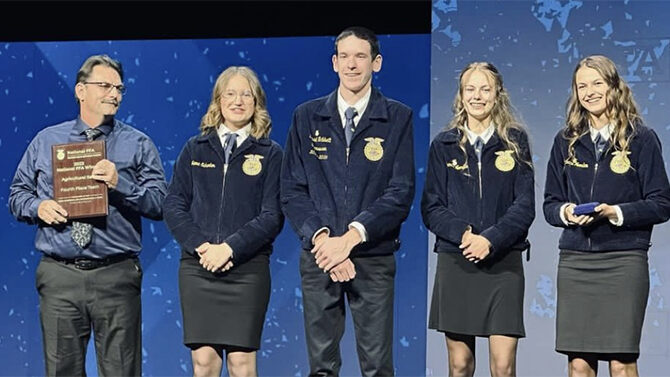By Margaret Inoue
Older adults might not always recall names, rote facts and figures as well as in their youth, but they may be better at coming up with ideas and solutions.
Older adults can find themselves in a position where they are accomplished at thoughtful decision-making.
“You slow down a bit and give yourself time to think. You feel better about your decisions because you’re not making snap judgments,” said Jerri Halter, Mount Angel Senior Center volunteer.
With practiced ease, Charlotte Grosjacques, director of the Mount Angel Senior Center, goes about the center’s mission, providing a welcoming atmosphere and assistance with deep insight and care.
“You get more relaxed and accepting as you get older,” Grosjacques said. “There’s a calm that catches up with you. It’s a good way to be. You start to take the time to really notice the world around you, the way that life is, because you’re not rushing through things like when you were younger.”
Dana McBrien is the spiritual care coordinator at Providence Benedictine Nursing Center, a nationally recognized leader in innovative and compassionate care.
She said aging is different for each individual and definitely has its challenges, “but there are positive changes that occur as we grow older, too.”
McBrien said older adults have life experience to share.
“They are often less attached to material things and more focused on relationships,” she said. “There is a sense of gratitude towards others, often for the smallest of kind acts like stopping by to say hello or asking how someone is doing. Older adults can have an increased openness and a deepening spirituality. Many people seem to become more reflective, forthright and patient.”
An older adult’s pattern recognition skills are finely tuned – having seen it, done it, possibly multiple times, before.
Silverton resident Evelyn Hynes volunteers at the Mount Angel Senior Center twice a month and has volunteered at SACA’s food bank for the past 29 years. Hynes commented that as we get older, “We know more, or at least we should, because we’ve experienced more. I know what to do because I’ve had a lifetime of doing!”
As people get older there is a wealth of past experience to draw upon, age-enriched perspective and an increased likelihood of possessing that profound enlightenment called wisdom.
Might there also be something beyond a wealth of experience, something partially physical causing this to happen?
Dr. Roberto Cabeza of Duke University’s Center for Cognitive Neuroscience is at the forefront of the study of “Compensatory Brain Activity in Older Adults.” Of particular interest from Cabeza’s research is what is called the Increase in Bilateral Brain Use, or that older adults are more likely to use the left and right sides of your brain at the same time. Reorganization of the networks in the brain shows that as we age there is less of the rapid flipping back and forth between the right and left sides of the brain. As we get older, we see brain usage increasing in “whole brain” use in thought and activity and the brain is used in an increasingly holistic manner.
This may slow you down a bit as you are accessing what is your full database, but it can make for rich and informed thought.
According to the Alzheimer’s Association, the number one myth concerning Alzheimer’s is the misconception that memory loss is a natural part of aging. Alzheimer’s disease is a form of dementia and causes problems with memory, thinking and eventually, motor skills.
Dodie Brockamp, executive director of the Silverton Senior Center and long-time area health advocate for older adults said, “If you can’t put a name to a face, don’t jump to the conclusion that you have or are getting Alzheimer’s disease. Just because you are getting older and notice that you are forgetful does not mean that you are getting Alzheimer’s. There are many alternate reasons why you can be forgetful, from normal memory lapses to a change in your regular patterns, which can be physical or emotional.”
According to the National Seniors Council, active aging is best supported by an “age-friendly environment where seniors have access to programs and services that fulfill their needs and interests.”
Mount Angel Towers works to create this sort of environment through a variety programs and activities.
“Residents are encouraged to pick and choose what interests them personally, from writing classes, yoga, swimming and a daily social hour, to trips, outings and spiritual services, there is something for everyone. At the Towers, everyone is family and we dedicate ourselves to creating a caring community,” said Robert Hailey, who works at the Towers.
A key to your brain staying healthy is keeping your body healthy, Brockamp added.
“Join us – we offer a range of activities and volunteer opportunities as well as an increasing focus on agility and brain function activities in the coming year,” she said. “By signing up for one of our many interesting programs or classes, you may be helping to create new brain cells, or neurons, and connections, known as synapses, in your brain.”
Neuroplasticity or brain plasticity, the term coined by Polish neuroscientist Jerzy Konorski, proposes that learning as well as social and physical activity all work to strengthen and re-wire the brain. One can alter the organization and the physical structure of the brain by creating new neurons and connections.
Doris Moore, volunteer coordinator for the Silverton Senior Center’s, finds that she is a little less retiring in retirement. “I wasn’t as much of a people person when I was working. There was less social interaction and I didn’t have much to say. Now that I volunteer at the Senior Center, I find that I am much more socially active and that’s a positive. There is a very lively community here.”
And the livelier the person is, the healthier the brain is.
